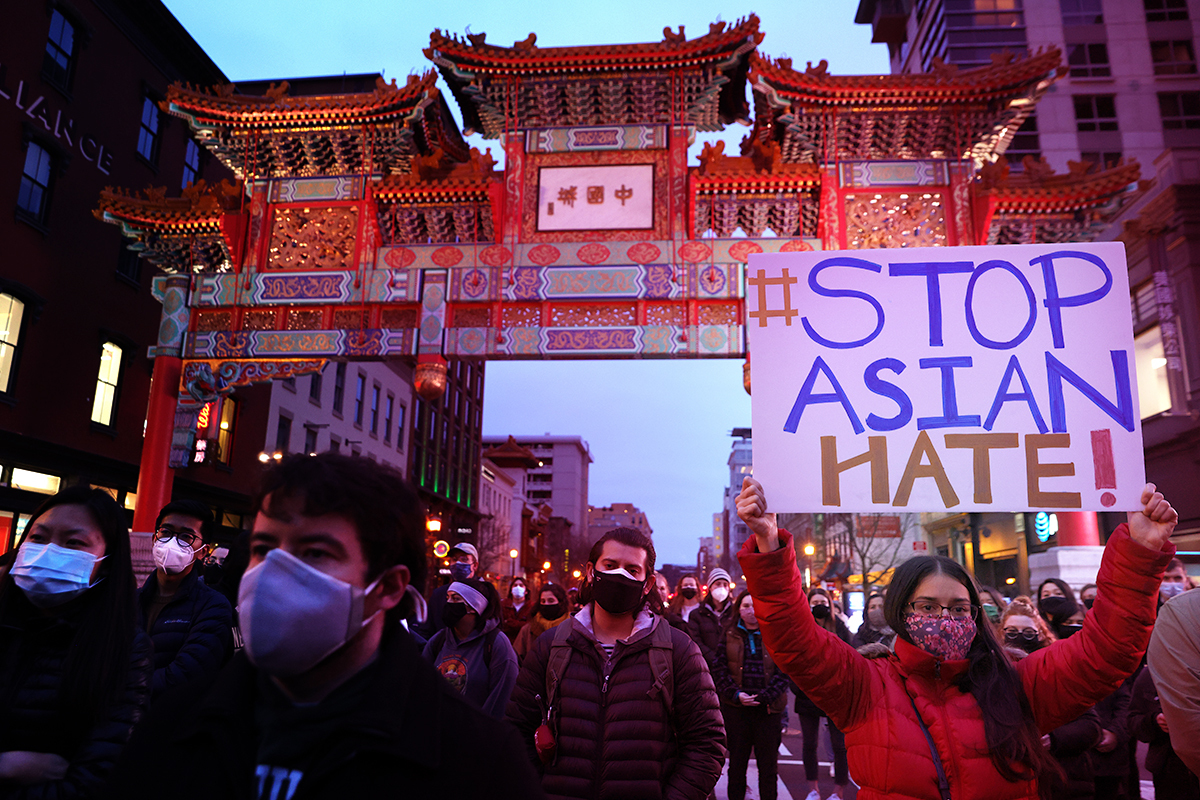I’m angry, I’m heartbroken, and I’m incredibly exhausted.
I woke up to a nightmare on Wednesday, March 17. Texts of “are you okay?”, tweets from fellow Asians, broken and terrified, and the carefully crafted words of support from prominent politicians flooded my feed. The mass murder in Atlanta, Georgia that left eight dead, including six Asian women, was all I could think about, all I could see.
After getting through class, I called my mom in Alabama. With 600 miles between us, I FaceTimed with her to re-evaluate the plan. For months, the rise in anti-Asian hate crimes in America hovered over us, forming a constant anxiety. As a family, we talked about staying hyper-vigilant. Now, I advised her to stay away from certain areas of town.
Anti-Asian violence has been ignored for too long. From the Chinese Massacre of 1871 in Los Angeles, in which a mob of white people murdered Chinese residents in cold blood, to the murder of Vincent Chin, a Chinese-American who was beaten to death in Michigan in 1982, to the now over 3,800 anti-Asian incidents this past year, over 11% of which involved physical assault, we’ve never seen justice.
America’s economic and political frustrations are intimately linked with anti-Asian violence. The AAPI community, seen as perpetual foreigners, are often the recipients of it. We’re the perfect scapegoat for why white California workers were paid less in the late 1800s, why there was a decline in American auto-manufacturing in the 1980s, and why America is currently shut-down in a deadly pandemic. Like the virus, we’re branded as invasive. From direct government action, including the Chinese Exclusion Act and the internment of Nisei, we’re an enemy of the very country we call home. We’re never fully treated as Americans, and thus, violence against us persists and the crimes are grossly under-prosecuted.
Of course, the mass murder in Atlanta involves more than race. It’s ignited a necessary conversation about the intersection of class and gender and the hyper-sexualization of Asian women. Over 68% of the anti-Asian incidents last year targeted women. American imperialism has historically propagated us to be sex workers, objects of conquest, and outlets for sexual violence. Working class Asian women are seen as easy targets. I’m not shocked that a murderer would avoid admitting to racist intentions — it makes another charge less probable. But, his choice of victim and his common choice of parlor says enough.
Why are female Asian bodies valued less, and what can be done?
I look to my Jewish community and I ask for deeper reflection and swift action. I wrote about the complexities of my identity last year. I wrote about the harm behind joking that Asians and Jews are somehow better suited for each other, per the model minority myth and fetishization. The media plays its role, making the coupling a joke and deeming a predatory relationship like Woody Allen and Soon-Yi Previn as admissible. I hope it’s apparent now that the consequences are violent. Infantilizing us and perpetuating Asian women as subservient under the white male gaze is killing us.
I ask my Jewish community to provide better support for the AAPI community at large and Asian Jews at this time. Our shared history of being scapegoated should offer plenty of opportunities for empathy. But that isn’t enough. Tikkun olam demands actionable items, not just your understanding. Our fight towards liberation is against white supremacy. It involves community action, not a reliance on increased policing or institutions that continue to kill us. That community action deserves support from us all.
One easy form of direct action is supporting the families of the Atlanta victims. Sign on to Advancing Justice Atlanta’s community statement, donate to support the victims and their families, and share crisis response resources. To continue your action, Red Canary Song supports Asian migrant sex workers, CAAAV supports working-class Asian immigrant and refugee communities in NYC, and NAPAWF uses a reproductive justice framework to influence policy on Asian women’s bodies. AAPI grassroots organizing exists, despite the small to little attention it gets. Seek it out, and offer help in any way you can.
When vaccine distribution is successful, media coverage lessens, and the intensified scapegoating of Asian Americans seems to subside, do not forget us. Inaction will continue to prolong violence. Asian women were exotified before the pandemic, and they’ll continue to be if we don’t radically fight against it. The remnants of American imperialism will continue to paint us as sub-human sex objects. People of color will continue to bear the brunt of white anger. And more innocent lives will be lost.
We owe it to Delaina Ashley Yaun, Paul Andre Michels, Xiaojie Yan, Daoyou Feng, Julie Park, Hyeon Jeong Park, and the two Atlanta victims who are yet to be named to go silent no longer, and to demand justice for everyone who calls this country home.



